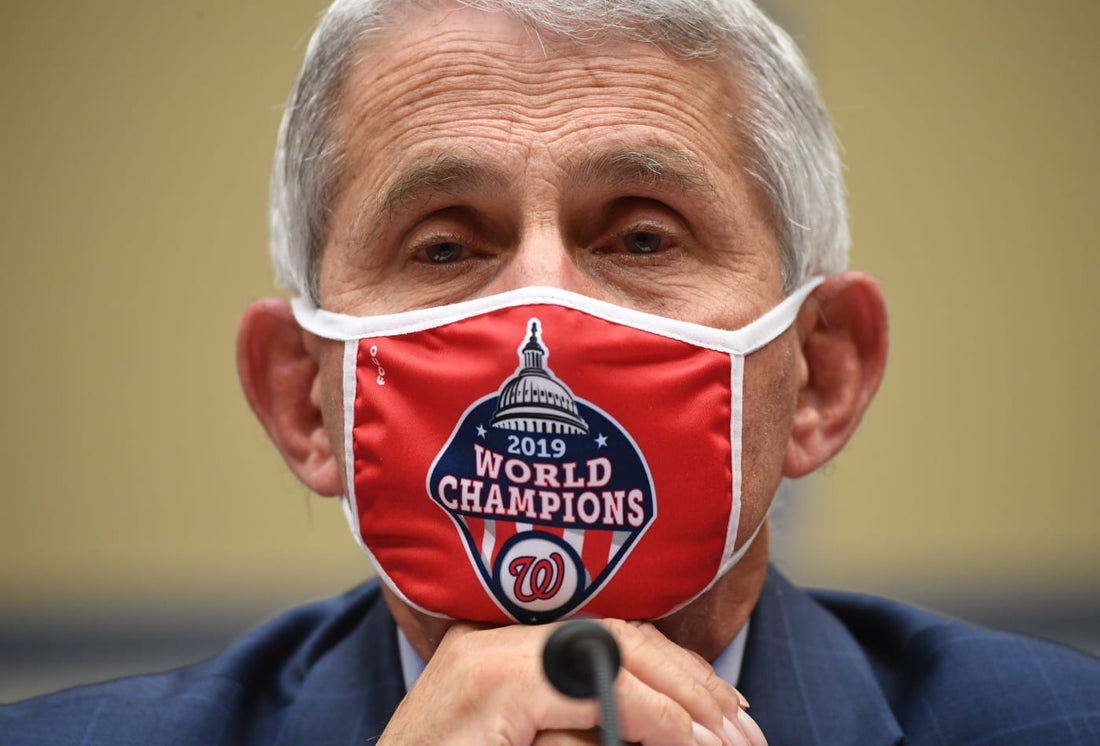“If you are deficient in vitamin D, that does have an impact on your susceptibility to infection,” says Dr. Fauci, who admits to taking vitamin D supplements himself. At the University of Chicago Medicine, researchers have recently discovered that people with an untreated vitamin D deficiency are more likely to test positive for the novel coronavirus.
Additionally, Fauci suggests that taking a gram or two of vitamin C would be beneficial because it is a “good antioxidant.” Both vitamins D and C have shown success in the prevention of respiratory tract infections. However, Fauci stresses that taking supplements does not form a straight path to invincibility. There are many everyday things you can do to keep your immune system in its best health. Here are some healthy habits Fauci recomments to implement into your daily life:
Sleep
Don’t we all wish we could sleep as much as we used to? Turns out it is more than just a desire -- it is a necessity. Fauci suggests that you should “get a reasonable amount of sleep,” but how much sleep is enough sleep?
The answer is about 7 hours of sleep based on a study from UCSF where researchers connected sleep loss to higher rates of illness. This study has shown that when you get less than 6 hours of sleep or less, you are four times more likely to contract an illness than someone who sleeps a full 7 hours a night. Surprisingly, one of the conclusions of the study suggested that lack of sleep trumped all other factors such as age, stress levels, smoking habits, race, education, or income in predicting the subjects’ likelihood of contracting a cold.
How can this be? Well, when you are asleep, your body produces proteins that function specifically to fight infection and reduce inflammation. Lack of sleep would lower the amounts of these protective proteins being produced, leaving you at higher risk for infection.
Have a healthy diet
Maintaining a balanced diet where you are taking in nutrients such as vitamin B, vitamin C, vitamin D, zinc, selenium, iron, and protein can improve immune cell function. Eating a balanced diet means making sure the foods you eat contain a range of vitamins and minerals and laying off processed foods such as sodas, cookies, chips, and lunch meats.
Reduce stress
The events of this year have caused 55% of Americans to report being more stressed now than they were at the beginning of the year. Although times are hard, Fauci says to “try to avoid or alleviate stress, which we know can sometimes impact the immune system.”
Cortisol is a hormone that is produced when you are stressed out. Having too much cortisol in your blood opens the door for more inflammation. Stress also lowers your body’s amount of lymphocytes, which are the white blood cells that help combat infection. The American Psychological Association has said that long-term stress can “ravage the immune system.”
Some ways of reducing stress during these trying times are sticking to a routine, exercising, and meditating. Sticking to a routine can help you feel grounded when times are so uncertain, while exercising is a great way to release endorphins, which trigger positive emotions, and mindful meditation allows you to empty your mind while focusing on the present.
Read more about how to maintain a strong immune system from Dr. Fauci here:
https://www.cnbc.com/2020/09/18/dr-fauci-how-to-help-keep-your-immune-system-healthy.html

